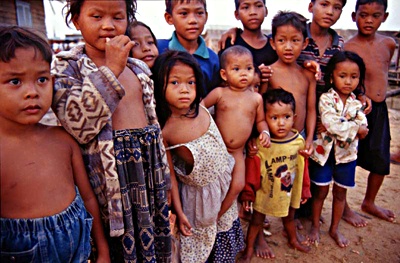All Nonfiction
- Bullying
- Books
- Academic
- Author Interviews
- Celebrity interviews
- College Articles
- College Essays
- Educator of the Year
- Heroes
- Interviews
- Memoir
- Personal Experience
- Sports
- Travel & Culture
All Opinions
- Bullying
- Current Events / Politics
- Discrimination
- Drugs / Alcohol / Smoking
- Entertainment / Celebrities
- Environment
- Love / Relationships
- Movies / Music / TV
- Pop Culture / Trends
- School / College
- Social Issues / Civics
- Spirituality / Religion
- Sports / Hobbies
All Hot Topics
- Bullying
- Community Service
- Environment
- Health
- Letters to the Editor
- Pride & Prejudice
- What Matters
- Back
Summer Guide
- Program Links
- Program Reviews
- Back
College Guide
- College Links
- College Reviews
- College Essays
- College Articles
- Back
Child Labor
Many people have researched the companies that they buy their everyday utensils and found that the companies employ children from other countries. They start a boycott to attempt to stop the company from using these children. Because of this, that child has to go work in a field of garbage instead of a decent factory. Although buying products produced by child labor goes against some of our morals, people should continue to purchase products manufactured by children because of the poverty of their countries, the need of the people, and the bad alternatives.
To begin with, the countries in which children work are the countries that have a shortage of money. The children play a large part in their families by bringing home a salary. In the article, “Is Doing the Right Thing Wrong?” by David Montero, he states that child labor “...is not unusual in Pakistan, where a per capita income of about $2,800 commonly drives children to work.”(2) With the children bringing home money, there is less stress on the family. Many people had a moral issue with the company Nike when they discovered that it used child labor. Nike removed its connection to the company and in doing so, robbed thousands of jobs. While addressing the matter Montero said, “...a suge of unemployment and falling profits… is the last thing a Pakistan struggling with militant Islam and poverty needs.”(2). When companies refuse to buy things manufactured with child labor, they are hurting the children as well as the company.
Additionally, the families of the children working need the income. Child labor helps thousands, as most of the workforce is children. “...as many as 20,000 families could be affected, since 70 percent of the local market relies on them for work.”(Montero, 2) When Nike removed its presence from the soccer ball industry, it cost thousands of families jobs. Those families would struggle with finances because their children could no longer work. Also, “For Sialkot’s 35,000 stitchers… soccer balls are a way of life.”(Montero, 2) Making soccer balls is all these families have known. The have had no other jobs and know very little of any other trade.
Also, the alternative options for these people are not safe. Most of the people spend most of their time at work or home, especially the children. Montero quoted, “There is not link to terrorist activity here, because everyone is involved in their work,’ says Khurram A. Khawaja… ‘This will create a void.”(4) Because of the lack of free time the children do not have the opportunity to be introduced to terrorist activity. In the article “This Company Is Employing Children?” by Nadira Faulmuller she states that, “...when the U.S. Congress threatened to ban the import of clothing made by children under 14 in Bangladesh, around 50,000 of them went from their jobs in the relatively clean textile factories to collecting garbage.”(1) By boycotting child labor factories, doing this will not save the children. It is simply changing who and they work for.
However, in the article “Why Are Your Clothes So Cheap?” by Kristin Lewis and Gini Sikes, they state that “In 2013, the deadliest disaster in the history of the garment industry happened in Dhaka… more than 1,100 workers were killed and thousands ore were injured when the Rana Plaza factory building collapsed.”(6) Some factories that employ children are very unstable and usafe. But, many companies have cut contracts with factories that employ children in unsafe conditions. Many more companies have required that factories that do employ children to have their building us to the U.S. building codes. The children who work now are safer in these building than in the other jobs available too.
In conclusion, even though child labor causes many accidents, people should continue to buy the products of child labor because of the poverty of the countries that employ children, the dependence of the countries on it, and the awful state of the other options. Do not stop purchasing everyday items because they were made by children.

Similar Articles
JOIN THE DISCUSSION
This article has 0 comments.
